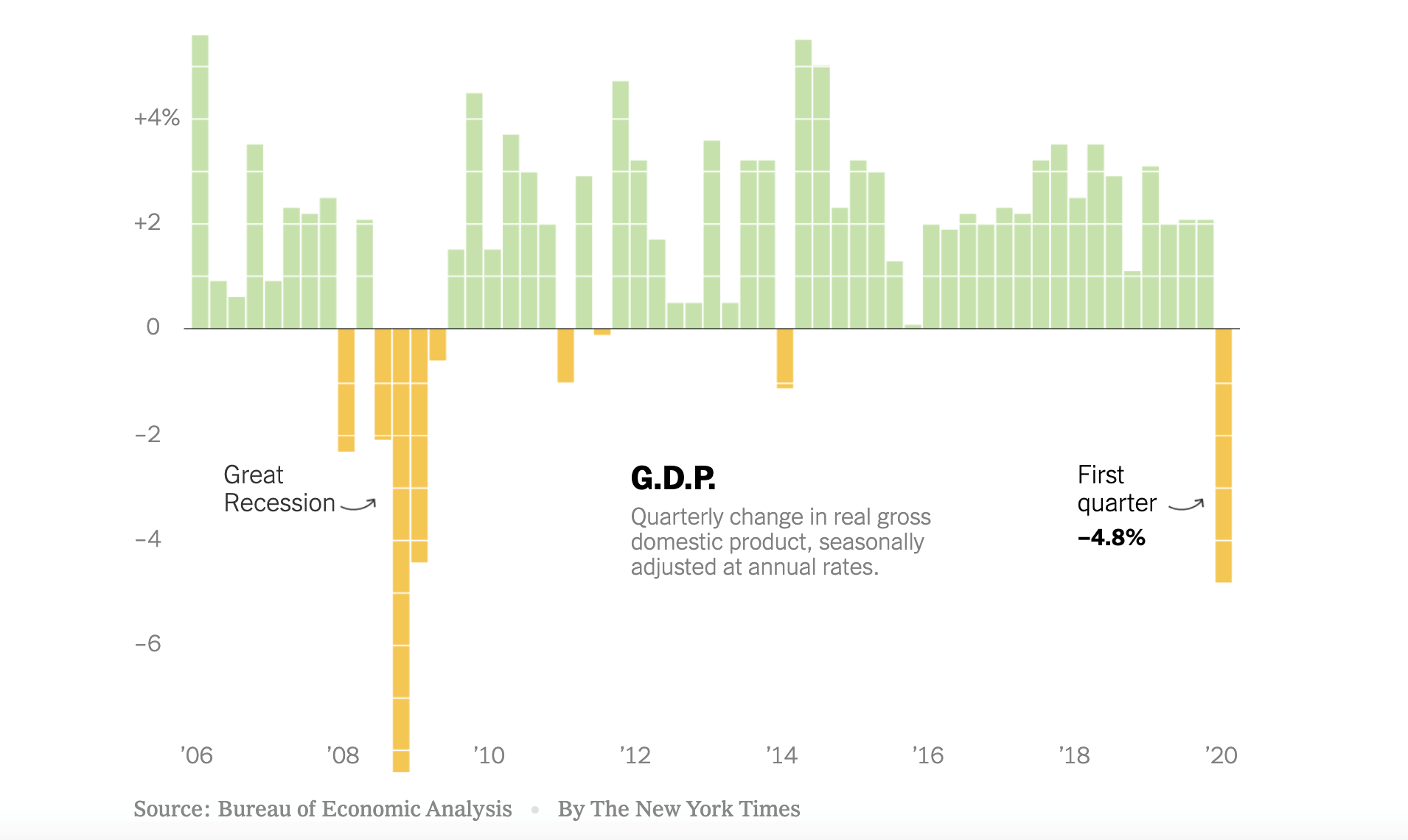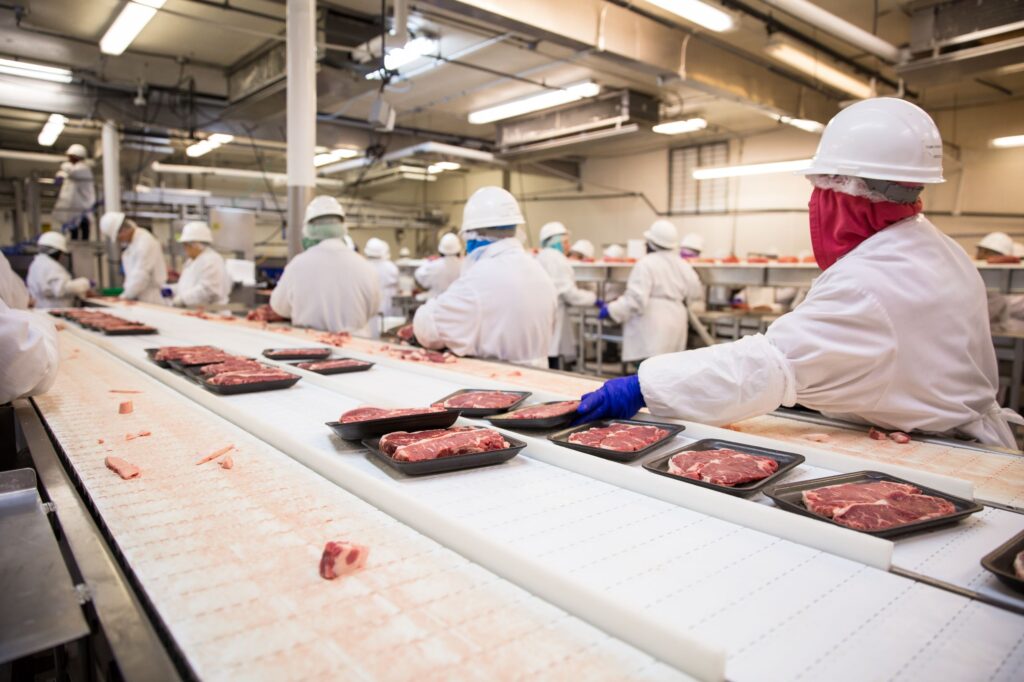A Message on COVID-19 from WorkSTEPS Chief Medical Office, Dr. Ben Hoffman:
Learning from Hot-Spots
Looking back over the short history of this pandemic, this fact emerges: Some of the most important things we’ve learned about COVID-19 – how it spreads, how to mitigate the spread, how to triage and treat – has come from the study of hot-spots.
Think China, Italy, cruise ships, New York City. Each of these provided opportunities to identify critical missteps, observe innovative solutions developed in a crucible of crisis, and come away with new insights and guidance to help others better navigate the pandemic.
In recent weeks, a new hot-spot has flared in the meat and poultry processing industry, providing employers of all types with the opportunity to learn from what went wrong and the corrective measures being taken to prevent future outbreaks.
An Industry Ripe for Outbreak
A confluence of factors come together in meat and poultry processing facilities and operations to make them highly vulnerable to the outbreak of infectious diseases:
People-intensive: The work requires a lot of people who have to be on site to do their jobs.
Space-Efficient: Production lines where people working shoulder-to-shoulder, and non-production space (hallways, bathrooms, breakrooms) that is minimized, creating conditions where people are in close contact at all times.
Vulnerable Workforce: Work on the front lines of a meat and poultry processing plant is lower-skilled, lower-wage and difficult – the sort of work often done by refugee and immigrant populations looking to get their start. Consider that refugees and immigrants:
- Typically don’t speak English as their native language; and in a workforce there may be many different languages spoken, making communication about COVID-19 difficult.
- May lack education in the sciences and thus have a harder time grasping the fundamental concepts about viruses and viral transmission needed to understand the rationale behind things like social distancing and mask-wearing.
- Out of economic practicality and for social support, often live in close quarters and to carpool to work, elevating the risk of disease spread among workers and to/from the community.
Incentives to Work: Pay policies and incentive compensation programs at meat and poultry processing plants are typically designed to reward production efficiency and discourage absence. When being absent means not getting paid and missing out on bonuses, workers will show up even when sick. This is particularly problematic when a pandemic strikes.
Critical Infrastructure Focus: At a time when many industries have been asked to slow down or even stop operations, the pressure on meat and poultry processors has been to increase production. It is an industry that has been asked to focus on responding to our country’s need for food security, and in so doing, it largely failed to implement controls to protect their workers.
Not many businesses will have all the above risk factors, but many will have some. All companies should review these risks to determine potential vulnerabilities within their own models. Specifically, language and cultural barriers, commuter/transportation challenges and incentive compensation approaches are risks that may otherwise be overlooked within COVID-19 mitigation strategies.
Learning and Responding – Lessons for All Employers
Prior to meat and poultry processing plants becoming hot-spots, the CDC had issued general interim guidance for businesses. In response to the outbreaks, the CDC recently released guidance for meat and poultry processing workers and employers.
This new guidance reflects lessons learned from hot-spots and represents a new gold standard for other businesses to review and apply based on the specifics of their situation. We would not be surprised to see the more general guidance documents updated soon to reflect the more comprehensive guidance provided in the meat and poultry document.
Below are a few noteworthy items in the document that stood out to me as worth highlighting. I mention them here with a strong recommendation that the entire document be reviewed in detail by a team dedicated to COVID-19 mitigation and return to work policies and practices. Within the comprehensive guidance, you’ll find:

- Useful graphics that may help think through options for increasing the distance between workers or use of barriers to block the airborne spread of the virus.
- Recommendations regarding the use of fans (including personal fans) as possible contributors to the risk for airborne spread.
- Specific recommendations for carpooling.
- Guidance to review absence and incentive compensation policies.
- Recommendation to consider cohorting groups of employees to reduce contact among the larger employee population.
- Guidance on the use of masks/cloth face coverings – industry-specific, but some tips more broadly-applicable
- Provision of downloadable education posters in 21 different languages.
- Specific recommendations on the use of PPE
…And there is so much more. To facilitate detailed review and discussion, we invite you to access an easily shareable PDF version of the document here.
Thank Goodness, We Are Learning
Like me, I’m sure you encounter colleagues, friends and family members who are struggling to see how we will ever make our way to a new normal. The answer is simply by learning from our mistakes as well as our innovations.
Those of us who are not in the middle of hot-spots owe our gratitude to those who have endured the struggle and found ways to cope with crisis. We also owe our thanks to those who are studying what went wrong, what worked and how we can iterate better and better approaches as we make our way through.
Be well and stay safe.
Dr. Ben Hoffman, MD, MPH
Chief Medical Officer, WorkSTEPS
Click here for more info on our Coronavirus Medical Hotline for Employers & Employees
Medical:
The medical community learned Wednesday about the results of three different trials testing Gilead Sciences’ experimental drug remdesivir as a COVID-19 treatment. Based on the results from one of those trials from the National Institute of Allergy and Infectious Diseases (NIAID), Anthony Fauci, MD, director of the agency, called the drug the new “standard of care.”
The randomized, placebo-controlled trial of remdesivir conducted by NIAID, of 1063 hospitalized patients with advanced COVID-19, indicate that patients who received the drug recovered more quickly than patients who received a placebo, the institute announced. The median time to recovery for patients who received remdesivir was 11 days compared with 15 for patients who received placebo.
A study investigated the aerodynamic nature of COVID-19 by measuring viral genetic material in air in different areas of two Wuhan hospitals during outbreak. Researchers reported concentration of COVID-19 RNA in aerosols detected in isolation wards and ventilated patient rooms was very low, but it was elevated in the patients’ toilet areas, an indoor space housing large crowds, and rooms where medical staff take off protective gear. Results indicate that room ventilation, open space, sanitization of protective apparel, and proper disinfection of toilet areas can effectively limit the concentration of COVID-19 in airborne particles.
Here’s promising news in the worldwide race to develop a vaccine to ward off the coronavirus. The Jenner Institute at Oxford University has one that seems to work in lab animals and is ready to test its effectiveness in humans, if regulators approve. Its scientists had an approach that they already knew was safe: They had proved it in trials last year for a vaccine to fight MERS, a respiratory disease caused by a closely related virus.
Mitigation and Suppression:
Federal guidelines encouraging people to curtail nearly all public activities are also poised to expire Thursday after President Trump indicated he did not intend to extend them. “They’ll be fading out, because now the governors are doing it,” President Trump told reporters on Wednesday, referring to the restrictions. Some State restrictions expire this week, some states are extending, while others are letting restrictions lapse.

Corporate:
The Commerce Department reported the worst quarterly contraction in the nation’s gross domestic product (GDP) since 2008. GDP decreased at an annual rate of 4.8 percent in the first quarter of 2020.

The Work From Home WorkSTEPS Medical Team:

Ben Hoffman, MD, MPH
Chief Medical Officer

Tony Nigliazzo, MD
Medical Director

Loraine Kanyare, MSN, MPH, RN
Director of Case Management

Robert L. Levitin, MD
Physician Consultant

Lynda Phillips, LVN
Nurse Case Manager

Codey Church, LVN
Nurse Case Manager

Kerry Womack, LVN
Nurse Case Manager

Chuck Reynolds
Strategic Communications Consultant




